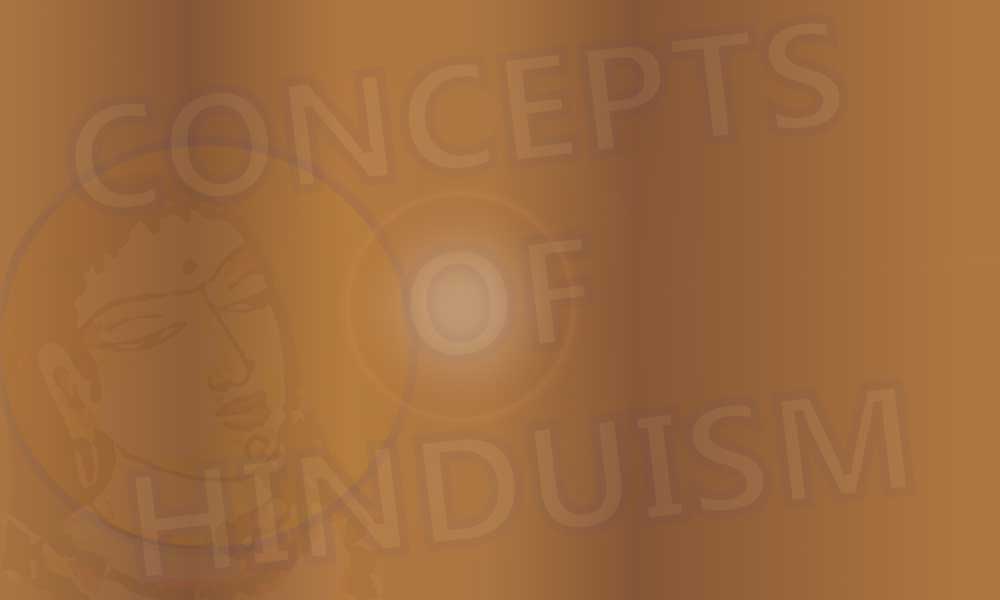
Ananda, the State of Bliss or Happiness

Ananda means happiness or bliss.
Literally, 'aa' means from all sides and 'nanda' means happiness or joy. Thus literally speaking, 'ananda' means joy from all sides. In a spiritual context, ananda is an eternal aspect of Brahman which we experience when we are united with Him. When there is no distinction between the knower and the knowing, the object and the subject, one becomes immersed in immense bliss. The scriptures describe Brahman as ananda itself (anandobrahma). In the material world ananda is pure joy attained through the fulfillment of desires or some material gains. In the spiritual world it is the pure and unqualified bliss attained through union with the Highest Self.
How to experience ananda or happiness?
I Happiness, ananda, arises from peace, equanimity, stability, detachment, renunciation, absence of desires, contentment, devotion, love, and liberation. Life is full of suffering. Yet for those who are caught in the phenomenal world, it is possible to experience happiness by the above means. Ananda is a state of freedom. From freedom comes supreme bliss. Hence the best means to experience ananda or happiness is liberation, mukti.
Spiritual happiness
When the need or desire for happiness is absent, happiness manifests itself. When dependence upon happiness is absent, happiness becomes an integral part of your consciousness. This is the secret of happiness or bliss the yogis understand. Therefore they cultivate detachment and strive for their liberation. Hindu scriptures describe God as a combination of sat (truth), chit (consciousness) and ananda (pure bliss).
In their ordinary consciousness human beings are incapable of experiencing pure ananda because of the interference of the mind and the senses and the attachment of the ego with the sense objects. The Bhagavadgita tells us from the activity of the senses arises attachment and from attachment comes anger and from anger comes delusion and from delusion suffering, which is opposite of ananda. The purpose of religious and spiritual activity is to turn the mind away from the sensory objects and inwards so that both the mind and the ego can be dissolved in an endless state of ananda or bliss.
Happiness in different traditions
Hinduism, Jainism and Buddhism recognize suffering as an inseparable aspect of human life. However, each religion attempts to address it in its own way by suggesting distinct solutions. Whatever may the means they prescribe, the goal of all these religions is always the same, release from the cycle of births and deaths, disease, attachment and suffering.
Buddhsim does not describe the state of liberation as pure bliss. But Jainism and Hinduism do. According to them, the natural state of soul is pure bliss, which become veiled by the activity of the senses and the development of a physical personality. When the soul regains its pure state of joy it overcomes its limitations and becomes one with itself or with the highest Brahman.
Suggestions for Further Reading
- Concept of Death, Hell and Afterlife in Hinduism
- Suffering from a Hindu Perspective
- Nirvana or nibbana, the state of liberation
- The philosophy of Jainism
- Hinduism- paths to liberation
- The Concept of Atman or Eternal Soul in Hinduism
- The Problem of Maya Or Illusion and How To Deal With It
- Belief In Atman, The Eternal Soul Or The Inner Self
- Brahman, The Highest God Of Hinduism
- The Bhagavad Gita Original Translations
- The Bhagavadgita, Philosophy and Concepts
- Bhakti yoga or the Yoga of Devotion
- Hinduism And The Evolution of Life And Consciousness
- Why to Study the Bhagavadgita Parts 1 to 4
- Origin, Definition and Introduction to Hinduism
- Symbolic Significance of Numbers in Hinduism
- The Belief of Reincarnation of Soul in Hinduism
- The True Meaning Of Renunciation According To Hinduism
- The Symbolic Significance of Puja Or Worship In Hinduism
- Introduction to the Upanishads of Hinduism
- Origin, Principles, Practice and Types of Yoga
- Essays On Dharma
- Esoteric Mystic Hinduism
- Introduction to Hinduism
- Hindu Way of Life
- Essays On Karma
- Hindu Rites and Rituals
- The Origin of The Sanskrit Language
- Symbolism in Hinduism
- Essays on The Upanishads
- Concepts of Hinduism
- Essays on Atman
- Hindu Festivals
- Spiritual Practice
- Right Living
- Yoga of Sorrow
- Happiness
- Mental Health
- Concepts of Buddhism
- General Essays